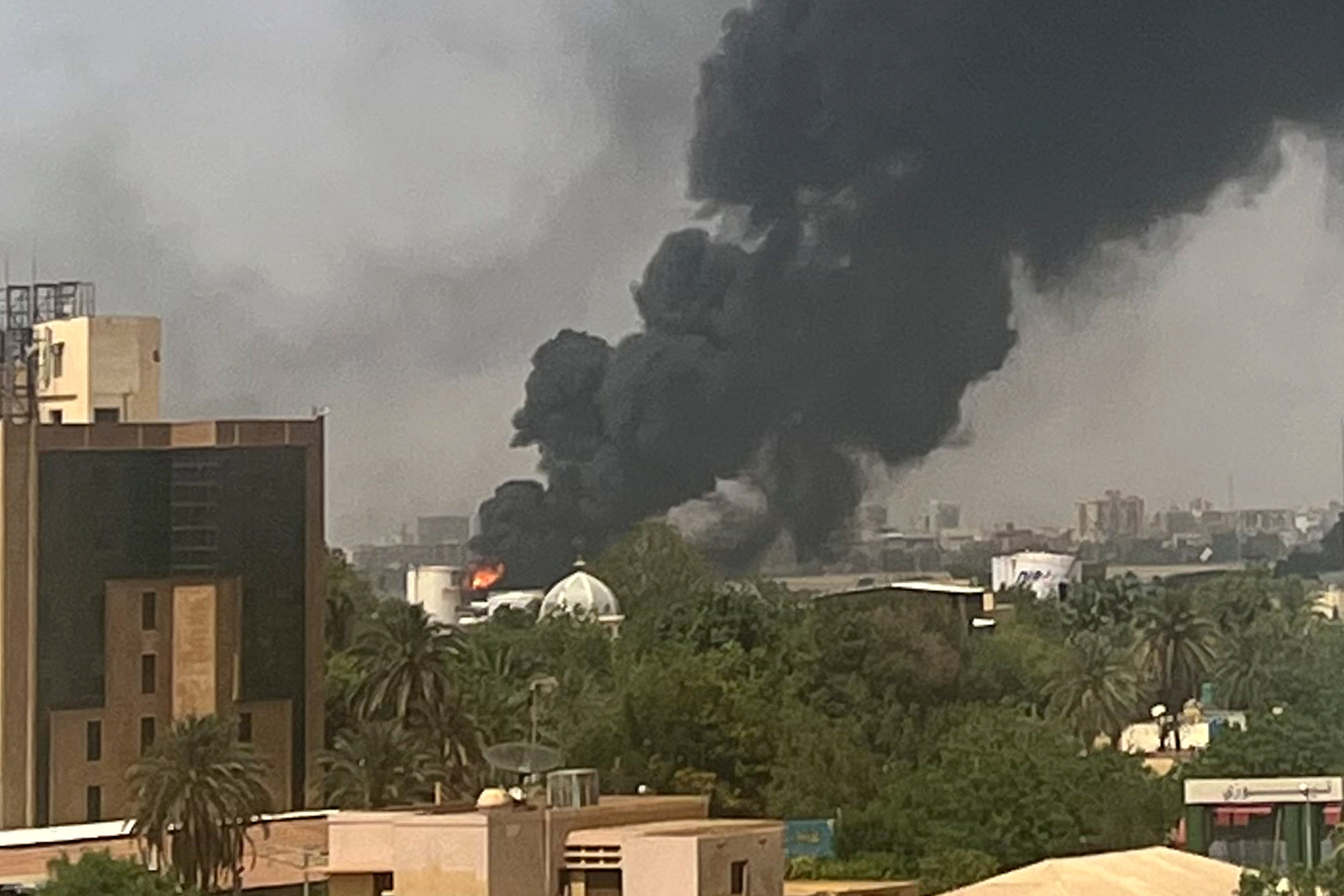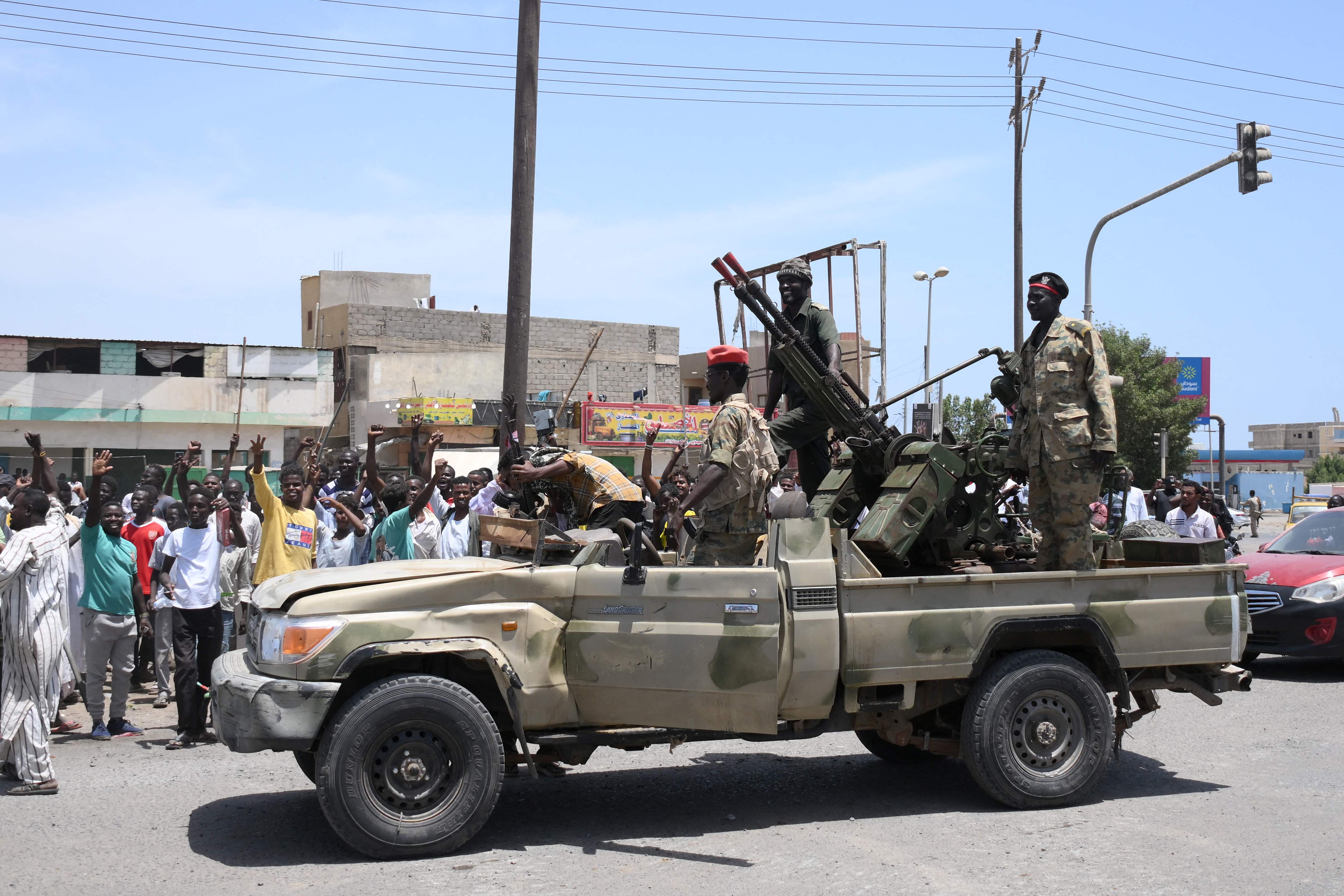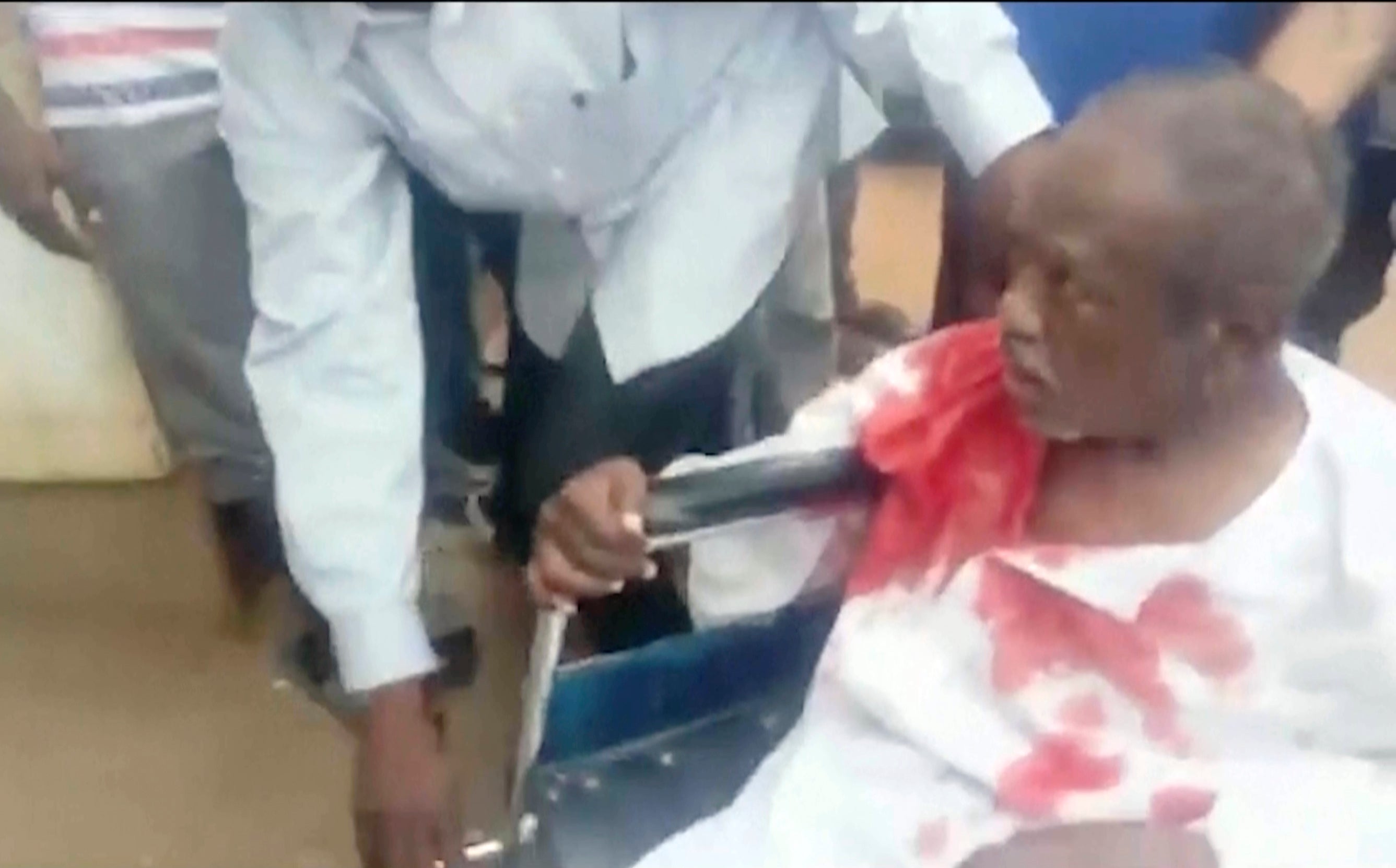
An aid worker and her eight-year-old son are trapped in a school in Sudan, as violent clashes ravage the country.
At least 270 people have been killed since the weekend, when clashes erupted between the Sudanese military and rival parliamentary group Rapid Support Forces (RSF) for control.
Katharina von Schroeder and her son were at a class at a school in the capital Khartoum on Saturday morning when they heard the gunshots and explosions rumbling through the streets “like a thunderstorm”.
She and around nine friends, mostly aid workers who were there with their children, frantically tried to find out what was happening.

By 9.30am they knew enough to make the decision to stay in the school sports hall, with the hope the fighting that was erupting across Sudan at that moment would soon calm down.
Instead, it escalated - and the group of around 20 remains trapped there, with a week or two of supplies and no idea how or when they will get out.
Speaking to The Independent from within the school, which is not being named for safety reasons, Ms von Schroeder said: “The fighting has been nearly continuous since Saturday morning.
“Sometimes we hear gunfire. I see lots of smoke and burning buildings. The noises of aircraft and detonations are really loud, like thunder - those sounds really go into your stomach.”
The 43-year-old said she has been fortunate to at least be trapped with her friends, who are all providing each other with emotional support - but she feels “very tense and stressed” and is struggling to sleep, especially considering “any fighter could make a mistake [and hit the school] in such a chaotic situation”.
On Sunday morning, the group saw a military jet flying past the school and heard shooting noises, finding two stray bullets in the school compound.

Ms von Schroeder said the parents are doing their best to protect the children from the full reality of what is happening, using supplies from the school to distract them with games and drawing.
She said she is particularly afraid for her son, worrying about how he will be affected, as well as the rest of the children across the country.
“He’s okay most of the time, but he’s definitely stressed by the situation, as are millions of children in Sudan,” she said.
The Save the Children worker, who is German, has lived and worked in Sudan for seven years with half that time spent in a job at the British Council.
“In all this time, I’ve never seen anything like this,” she said. “It makes me very sad seeing this happening. It’s a country with huge potential. The people are amazing, very kind, and welcoming. People could flourish if they had the environment [to facilitate it - but instead,] all that potential is being destroyed.”
Terrified Sudanese people have been trapped in their homes for days as clashes between the country’s armed forces and the RSF continue in Khartoum and other parts of the country for a fifth day. An internationally brokered truce swiftly failed on Tuesday, suggesting the fight for control of the country could be prolonged, as millions of people get caught in the crossfire.
Nearly 300 people have been killed in the past five days, the U.N. health agency said, but the toll is likely higher since many bodies have been left in the streets, unreachable amid the mayhem.

Relief International personnel and three World Food Programme staff members have already been killed in the violence, as British Foreign Office minister Andrew Mitchell condemned the “disgusting” targeting of aid workers.
For the group of aid workers and their children, Ms von Schroeder said it is currently too dangerous to for them to leave the school. They are with staff who work in the school’s cafeteria and who have offered them supplies from the school, including food.
“The question is how long will that last?” she asked. “We’re 20 people here. I do not know how much we have - probably a week or two, but eventually, we’ll run out.”

The Save the Children offices in the Darfur region have been looted, with life-saving medicines among the stolen items. The organisation has also been forced to entirely stop its work in around 10 of the 18 states, according to Ms von Schroeder, at a time when it is needed most. Already overwhelmed, many hospitals, including children’s hospitals, have been hit and forced to evacuate.
Ms von Schroeder said the Sudanese Ministry of Health has reached out to Save the Children to prepare for an emergency response. She said she is deeply concerned about the impact of the conflict, with malnutrition and a lack of access to water among the many issues facing the Sudanese people.
“Needs were huge before the conflict, so after these events, it will be even more dire,” she said. “Based on what we know about the destruction of life-saving supplies, I can say needs will rise dramatically.”
When it comes to her own group’s plight, she said the situation is too unstable for them to safely evacuate the school. She said she has been in touch with her embassy, which is keeping her updated on its plans.
“My priority is to get my son out of this,” she said. “But for now, we can just try to stay as safe as possible until there’s a solution. We don’t know what’s going to happen at all.”







